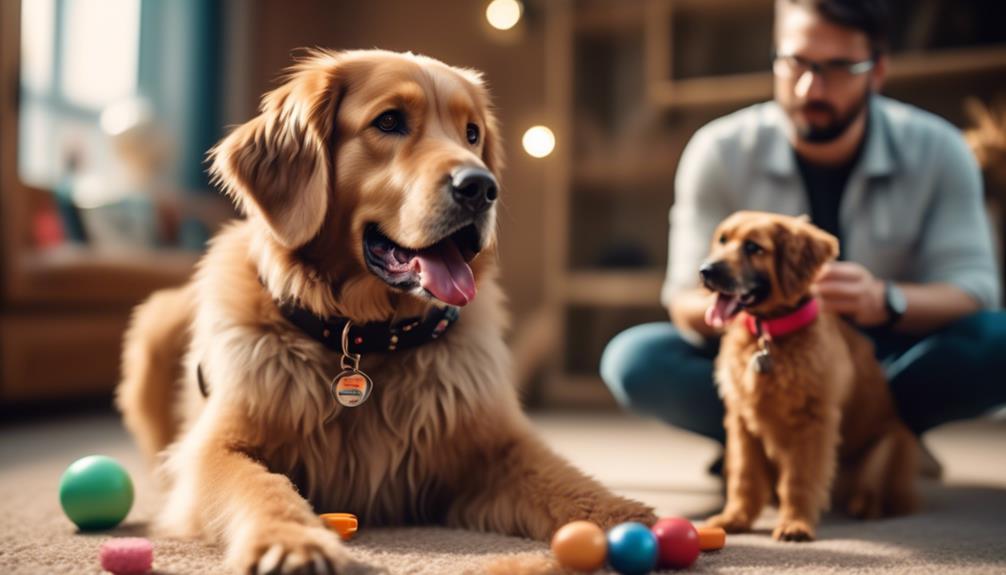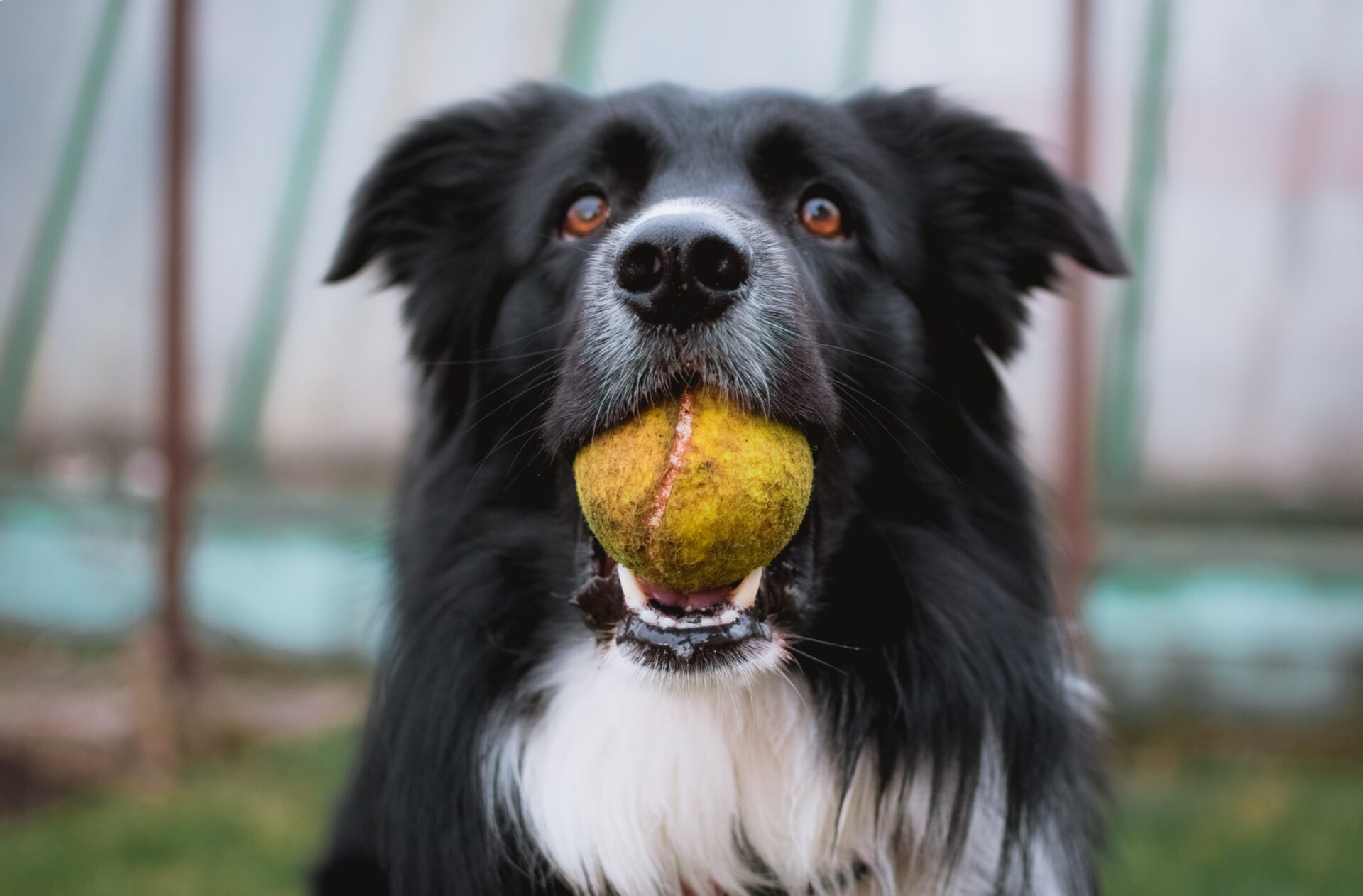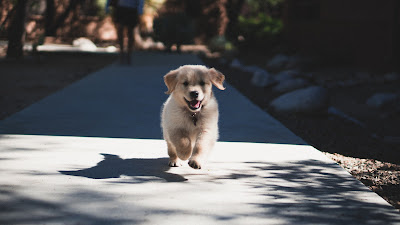6 Simple Steps To Finding A Reputable Dog Training Professional

Steps To Finding A Reputable Dog Training Professional: Are you struggling to find a reliable and trustworthy dog training professional? With so many options out there, it can be overwhelming to know where to start. But fear not, because we’ve got you covered. In this discussion, we will explore six simple steps that will guide you toward finding the perfect dog trainer for your furry friend. These steps will not only save you time and effort but also ensure that your dog receives the best training possible. So, let’s get started on this journey to finding a reputable dog training professional who will help you unlock your dog’s full potential.
Identify Your Training Needs
To identify your training needs, consider what specific areas of training, such as obedience or behavior modification, you require for your dog. Every dog is unique, and their training needs may vary. Obedience training focuses on teaching your dog basic commands, like sit, stay, and come. This type of training is important for establishing good manners and building a strong foundation for further training. If your dog has specific behavior issues, such as aggression or separation anxiety, behavior modification training may be necessary. This type of training aims to address and modify problematic behaviors, helping your dog become more well-behaved and balanced.
When looking for a professional trainer, it is crucial to find someone who specializes in the specific areas of training you need. Some trainers may have expertise in obedience training but may not be as experienced in behavior modification. It is important to inquire about the trainer’s experience and how long they have been practicing each type of training.
Additionally, consider the trainer’s training philosophy. Some trainers use a positive-only approach, focusing on reward-based training methods. Others may use a balanced approach, incorporating both rewards and corrections. Understanding the trainer’s philosophy will help you determine if it aligns with your training goals and preferences.
Furthermore, ask about the trainer’s use of equipment. Some trainers may use tools such as prong collars or electronic collars, while others may prefer a more gentle approach using only positive reinforcement. It is important to find a trainer who is open to customer input and values your opinion regarding training tools and corrections.
Lastly, consider how involved you will be in the training process. A good trainer should not only train your dog but also emphasize teaching you as the owner. They should provide you with the necessary knowledge and skills to continue training your dog effectively even after the sessions are over.
Research Dog Training Methods
Now that you have identified your training needs, it is essential to research different dog training methods to find the most effective and humane approach for your furry friend. When searching for a professional dog trainer, it’s important to ask about their training methods and ensure they align with your values. Look for trainers who prioritize positive reinforcement training, which rewards desired behaviors instead of punishing unwanted ones. Positive reinforcement has been proven to be effective and is a humane way to train dogs.
Avoid trainers who rely on aversive equipment like shock collars and prong collars. These methods can cause physical and emotional harm to your dog and are not recommended by reputable professionals. Instead, seek trainers who are well-versed in working with anxious, stressed, or fearful dogs. They should have experience in behavior modification techniques that focus on building trust and confidence in your dog.
When researching trainers, consider their credentials. Look for professionals who have obtained dog training certifications from recognized organizations. These certifications indicate that the trainer has undergone proper education and training in dog behavior and training methods.
It can also be helpful to observe a training session before committing to a trainer. This will give you a firsthand look at their methods and how they interact with dogs. Pay attention to how the trainer communicates with the dogs and how the dogs respond. A good trainer should use clear and gentle cues to guide the dog’s behavior.
Seek Recommendations From Trusted Sources
Are you looking for a reputable dog training professional? When it comes to choosing a dog trainer, seeking recommendations from trusted sources can be a valuable resource in finding the right one for you and your furry friend. Friends, family, and neighbors who have had positive experiences with dog trainers can provide valuable insights and recommendations. Local veterinarians, pet stores, and dog groomers are also great sources to ask for referrals to reputable dog training professionals. They often have firsthand knowledge of trainers in the area and can provide recommendations based on their professional experience with dogs.
In addition to personal connections, online platforms and forums dedicated to pet care and training can offer a wealth of recommendations from other dog owners. These communities are passionate about their pets and are often eager to share their experiences with different trainers. Local rescue organizations and animal shelters are another valuable resource to consider. They work closely with reputable dog trainers and can provide recommendations based on their collaborations.
Breed-specific clubs or associations are also worth reaching out to. These organizations have members who are experienced dog owners and breed enthusiasts. They can provide recommendations based on their knowledge and understanding of specific breeds’ training needs.
When seeking recommendations from trusted sources, it is important to ask the right questions. Consider asking about the trainer’s credentials and qualifications, such as whether they are certified by reputable organizations like the Association of Professional Dog Trainers or the Council For Professional Dog Trainers. Asking about the methods and techniques they use is also crucial to ensure they align with your training philosophy. By seeking recommendations from trusted sources and asking the right questions, you can find a reputable dog training professional who will help you and your furry companion achieve your training goals.
Interview Potential Trainers
If you’ve gathered recommendations from trusted sources, it’s time to take the next step and interview potential trainers for your dog. This is an important part of the process as it allows you to assess the trainer’s qualifications and determine if they are the right fit for you and your dog’s needs.
When interviewing potential trainers, there are several key questions you should ask. First, inquire about their education and credentials. Find out if they have undergone any formal training or certifications in dog training. Trainers who have obtained certifications from reputable organizations, such as the International Association of Animal Behavior Consultants, have demonstrated a commitment to their profession and are more likely to provide quality training.
Next, observe a training class conducted by the trainer. This will allow you to see their teaching style and assess how they interact with dogs and their owners. Additionally, ask for references from former students. Speaking with individuals who have worked with the trainer in the past can provide valuable insights into their training methods and effectiveness.
It’s also important to inquire if the trainer allows input from the customer regarding equipment, rewards, and corrections. A professional trainer should be open to discussing and incorporating your preferences into the training process.
Lastly, consider arranging consultations with potential trainers to discuss your training goals. This will allow you to gauge their understanding of your specific needs and determine if they have experience with the type of training you require, such as Basic Obedience Training or private training.
Visit Training Facilities
To gain further insight into a potential dog trainer’s methods and environment, it is essential to visit their training facilities. By visiting the training facilities, you can observe firsthand how the trainers interact with the dogs and their owners. This will give you a better understanding of the training methods used and whether they align with your training goals.
When you visit the training facilities, take note of the cleanliness and organization. A well-maintained and organized facility shows that the trainers prioritize the well-being and comfort of the dogs. An organized environment also indicates that the trainers have a structured approach to training, which can be beneficial for your dog’s learning.
Observe the trainers during a training session or attend a class if possible. Pay close attention to how they communicate with the dogs and their owners. Look for positive reinforcement techniques and a calm and patient demeanor. These are important qualities to look for in a trainer, as they create a positive and effective learning environment for your dog.
While at the training facility, take the opportunity to discuss your training needs with the trainers. Inquire about the specific training programs and classes they offer. A reputable trainer will be able to provide you with tailored solutions based on your dog’s needs and your training goals. They should be knowledgeable, experienced, and able to address any concerns or questions you may have.
Visiting the training facilities allows you to see firsthand how dogs learn and interact in the training environment. It allows you to assess the professionalism and competence of the trainers. By taking the time to visit the training facilities, you can make an informed decision when choosing a dog trainer who will provide the best training for your furry friend.
Consider Experience and Credentials
When considering a dog training professional, it is crucial to evaluate their expertise and credentials. Look for trainers who have specific training certifications and a solid background in behavior modification and training techniques. Additionally, consider their years of practical experience and inquire about client success stories to ensure they have a proven track record.
Trainer’s Expertise and Certifications
Consider a dog trainer’s expertise and certifications when searching for a reputable professional. It’s important to determine if a trainer has the necessary credentials, such as being a Certified Professional in dog training and behavior. Look for a trainer with experience in different areas of dog training, as this indicates a well-rounded understanding of canine behavior.
Inquire about the trainer’s expertise in specific behavioral issues or training goals that are relevant to your dog. A reputable trainer should have a deep understanding of dog behavior and use evidence-based training methods. Continuing education is also crucial, as it shows a commitment to staying up-to-date with the latest training techniques. Ultimately, finding a trainer who uses humane training methods that align with your training goals is essential for achieving success with your dog.
Years of Practical Experience
Take into account the trainer’s years of practical experience and credentials when choosing a reputable dog training professional. In this unregulated industry, it is crucial to find someone with a proven track record.
Years of practical experience indicate that the trainer has encountered various dog behaviors and knows how to handle them effectively. It also shows their commitment and passion for the field. Additionally, observing the trainer’s body language and interaction with dogs can give you insights into their expertise. Scientific research has shown that positive reinforcement techniques are the most effective and humane way to train dogs.
Therefore, ensure that the trainer aligns with this approach. Lastly, look for credentials from reputable organizations such as the Certification Council for Professional Dog Trainers or the International Association of Animal Behavior Consultants, which further validate their expertise.
Client Success Stories
Look for trainers who have a proven track record of successful client outcomes and verifiable experience in handling diverse dogs and behavioral issues. When looking for a dog training professional, it is important to make sure they have the necessary experience and credentials to effectively train your dog. Try to observe their teaching methods and see if they have a positive impact on the dogs they work with.
Seek trainers who have certifications and credentials from reputable organizations in the industry. Additionally, it is beneficial to research and inquire about specific case studies or testimonials showcasing the trainer’s ability to achieve client goals. Prioritize trainers who have consistently demonstrated success in helping clients achieve their training objectives. By considering client success stories and the trainer’s experience and credentials, you can find the right professional to help you with your dog’s training needs.
Ask for References
When choosing a dog training professional, it is important to ask for references from former students. This step is crucial in ensuring that you find a reputable trainer who has a track record of success. By speaking with previous clients, you can get a better idea of the trainer’s abilities and whether or not they are a good fit for you and your furry friend.
To start, look for someone willing to provide references. A reputable trainer will have no problem giving you the contact information of past clients who can vouch for their skills. Once you have the references, take the time to check to see if they are legitimate. Give the former students a call or send them an email to ask about their experience with the trainer. Inquire about the trainer’s communication style, their ability to read and interpret body language, and their overall effectiveness in helping them train their dogs.
When speaking with former students, be sure to gather as much information as possible about the trainer. Ask about their knowledge of different dog breeds and their understanding of various training techniques. Inquire about the trainer’s people skills as well, as this is important for establishing a good working relationship. A trainer who is patient, understanding, and can effectively communicate with both you and your dog is crucial.
If you’re having trouble finding trainers in your area, consider reaching out to local dog owners or pet stores for recommendations. These individuals may have firsthand experience with trainers and can provide valuable insights. Additionally, you can utilize online resources and search engines to find trainers in your area, along with reviews and ratings from previous clients.
Trust Your Instincts
If your gut feeling tells you something is off about a dog trainer, it’s important to trust your instincts. As a new dog owner, you may not have much experience with training professionals, but your intuition can be a valuable tool in finding the right one for you and your furry friend. Pay attention to your gut feeling about the trainer’s methods and demeanor. If something feels off, don’t dismiss it. Dog owners often have a deep understanding of their pets and can sense when something isn’t quite right. Trusting your instincts can help you avoid potential issues down the line.
When looking for a reputable dog trainer, it’s important to take the time to assess your comfort level with the trainer before making a decision. This means meeting them in person and discussing your goals and concerns. Pay attention to how the trainer interacts with you and your dog. Do they listen to your concerns and address them appropriately? Do they explain their training methods clearly? Trusting your instincts during these interactions can help you determine if the trainer is a good fit for you and your dog.
In addition to in-person meetings, you can also gather information about the trainer through other channels. Check their business cards or social media profiles for testimonials from previous clients. Reach out to these clients if possible to get a better understanding of their experience with the trainer. Remember, private training sessions can be a more personal and effective option for some dogs, especially those who may not do well in group settings. Trust your instincts when deciding whether private training is the right choice for your dog.
Lastly, be wary of trainers who rely heavily on aversive training methods, such as prong collars. While some dogs may respond well to these methods, they can be harmful and cause unnecessary pain. If your gut feeling tells you that a trainer’s methods are too harsh or inhumane, trust your instincts and seek out a trainer who uses positive reinforcement techniques instead. Remember, your dog’s well-being and happiness should always be a top priority. Trusting your instincts will help ensure that you find a reputable dog training professional who will provide the best care for your furry friend.
Steps To Finding A Reputable Dog Training Professional Frequently Asked Questions
How Do I Know if My Dog Trainer Is Legit?
To know if your dog trainer is legit, look for signs of a reputable trainer like certifications from reputable organizations, positive reviews, and specialized experience. Ask about their training methods and the role of positive reinforcement.
What Is the Highest Rated Dog Training Certification?
The CPDT-KA certification is the most recognized in dog training. Alternative options include the ABCDT and CDBC certifications. Specialized certifications in service dog training and aggression management are also available. Experience, industry recognition, continuing education, and client testimonials are important factors to consider.
How Do I Choose a Trainer?
When choosing a trainer, consider their training techniques. Look for positive reinforcement methods. Evaluate their experience and check client reviews. Ask about training packages and cost considerations.
What Is the Number One Rule in Dog Training?
The number one rule in dog training is positive reinforcement. By using rewards, consistency, and patience, understanding dog psychology, building a strong bond, effective communication, setting clear boundaries, and tailoring training methods, you can achieve success.
Conclusion
In conclusion, finding a reputable dog training professional is a straightforward process that involves identifying your training needs, researching methods, seeking recommendations, interviewing potential trainers, visiting facilities, considering experience and credentials, and asking for references. By following these six simple steps, you can ensure that you find a trainer who understands dogs, uses humane methods, and is committed to ongoing education. Trust your instincts throughout the process and remember that it’s okay to switch trainers if necessary.








